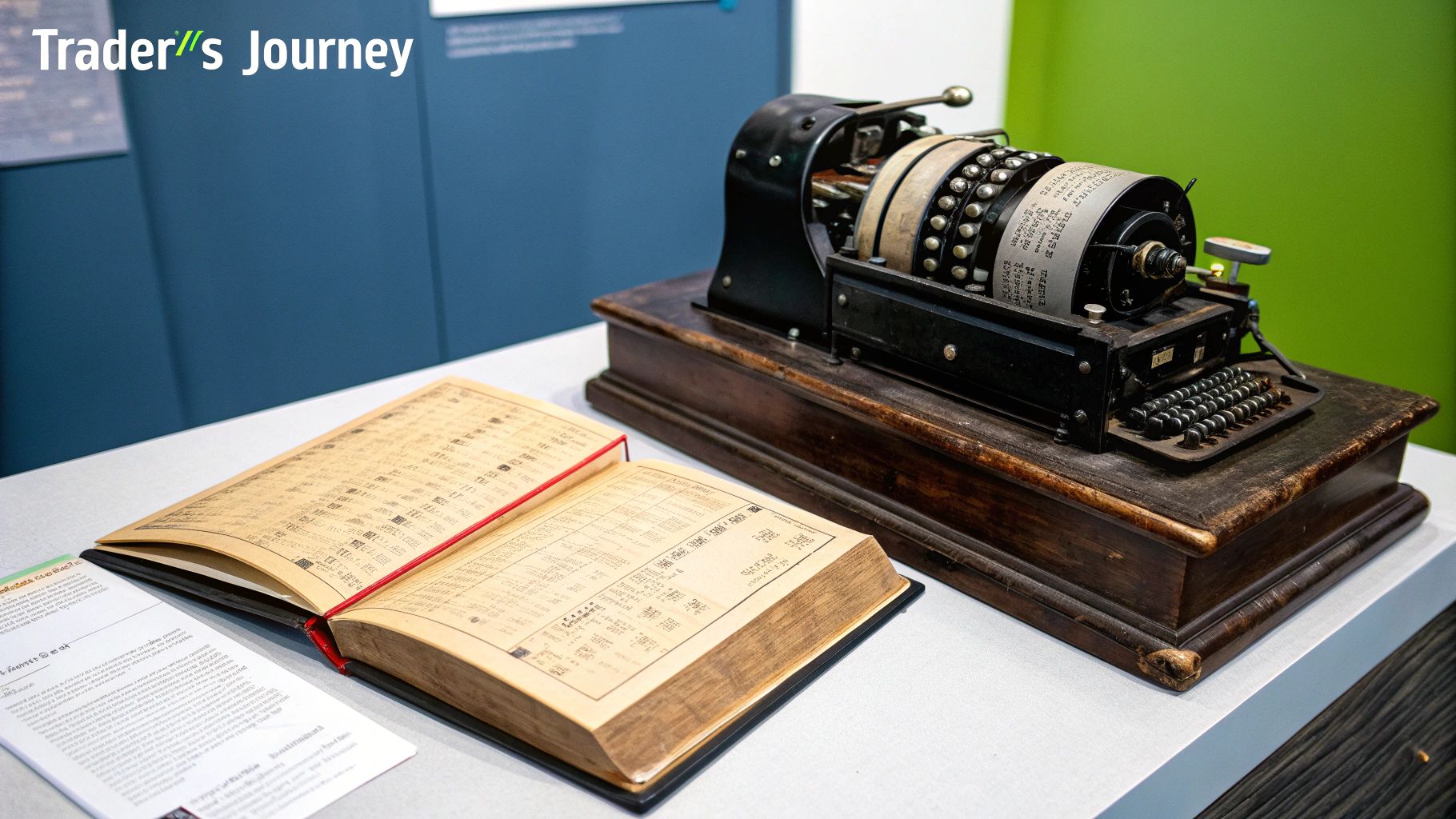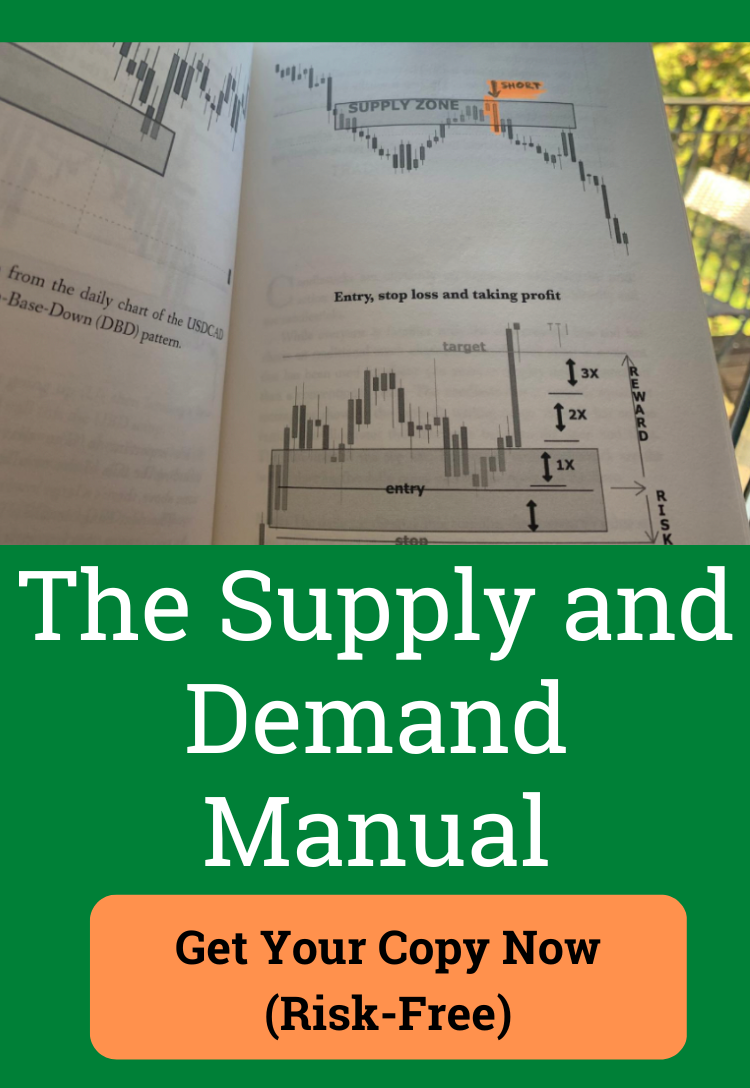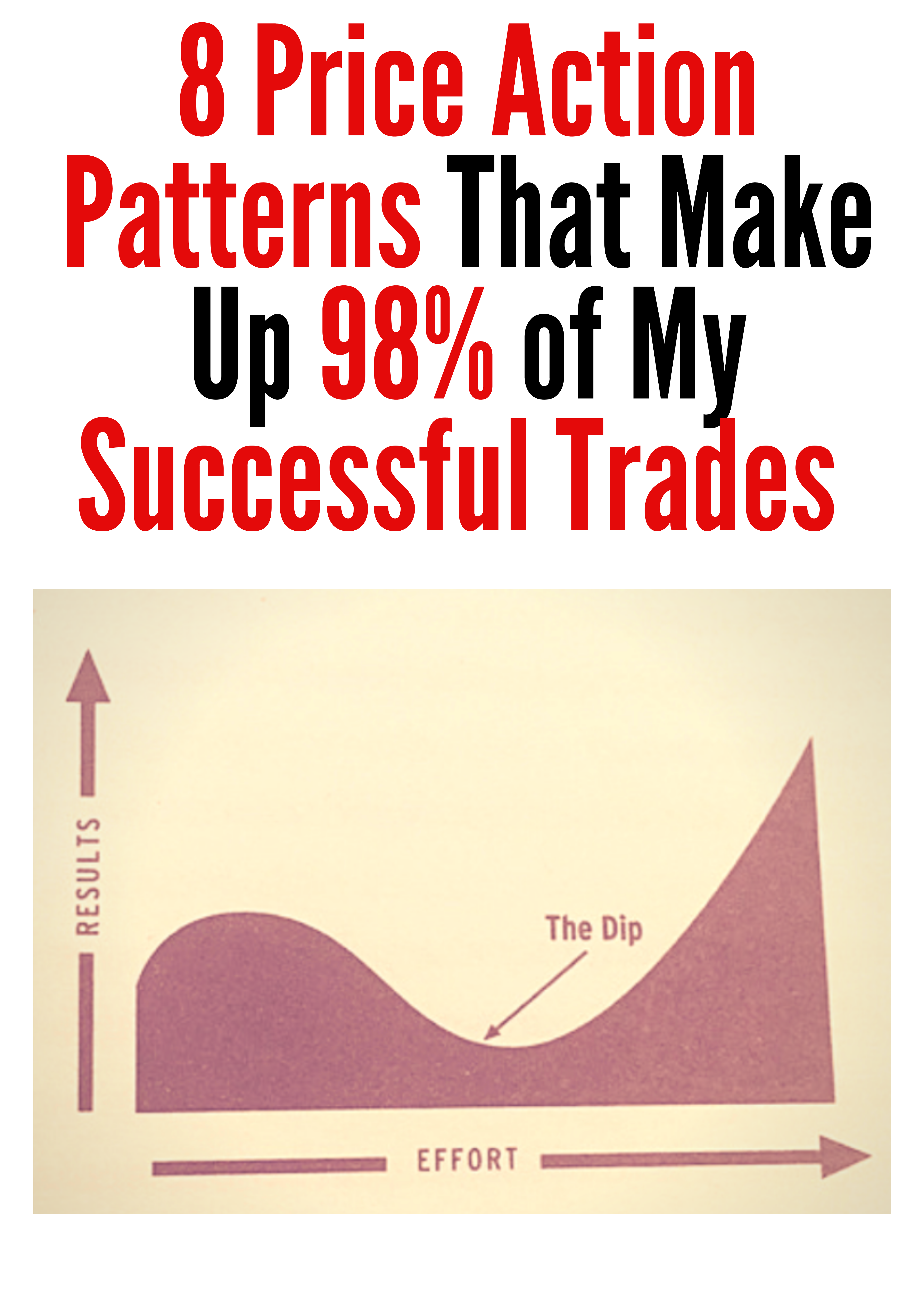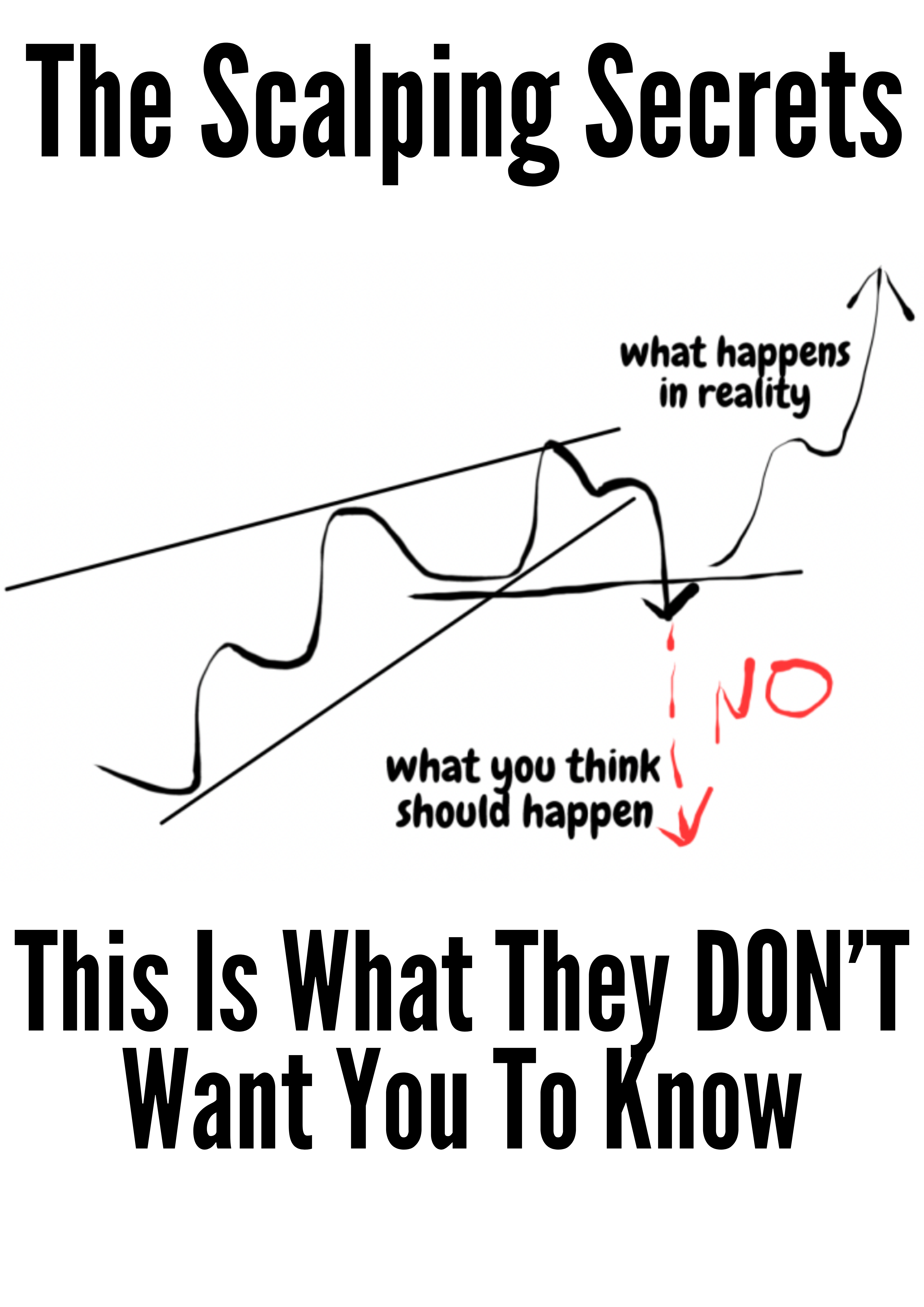8 Trading Psychology Books Every Trader Must Read
Unlocking the Trader's Mindset
Want to improve your trading performance? Mastering trading psychology is key. This list of top trading psychology books will help you understand the mental game behind successful trading. Discover how to manage emotions, overcome fear and greed, and develop the discipline needed for consistent profits. Whether you're a novice, seasoned professional, or somewhere in between, these books offer valuable insights to transform your trading psychology and improve your results. Dive in and unlock your full potential.
1. Trading in the Zone by Mark Douglas
For traders seeking to master the psychological game, Trading in the Zone by Mark Douglas is an essential read among trading psychology books. This seminal work delves deep into the mental barriers that prevent traders from achieving consistent success, regardless of how technically proficient they are. Douglas argues that fear, greed, hope, and other emotional biases are the primary culprits behind trading failures, often sabotaging even the most well-crafted strategies. He proposes that the key to overcoming these obstacles lies in developing a probabilistic mindset – accepting the inherent risk and uncertainty of the market and focusing on probabilities rather than predictions. This book lays the groundwork for building a robust trading psychology, providing a framework for creating a personal trading philosophy rooted in discipline and emotional control.

This method focuses on shifting a trader's perspective from one of seeking certainty and prediction to one of embracing probability and managing risk. It works by identifying and dismantling the common psychological traps that traders fall into, such as chasing losses, taking excessive risks after a winning streak, or abandoning a trading plan due to fear. Douglas provides actionable mental exercises designed to reprogram these ingrained thought patterns and cultivate a more disciplined and objective approach to trading. He emphasizes the importance of developing a consistent trading methodology and adhering to it even when faced with emotional pressure.
Examples of successful implementation include traders who, after internalizing the concepts in this book, are able to maintain discipline during both winning and losing streaks. They learn to accept losses as part of the game and avoid emotional decision-making that can lead to impulsive trades. They understand that consistent profitability comes from managing risk and following a well-defined plan, not from predicting every market move. The book also provides scenarios of traders who consistently sabotage themselves by deviating from their plans and how they learn to overcome these self-destructive tendencies.
Actionable tips for readers:
- Practice the mental exercises daily: The exercises outlined in the book are designed to reprogram your subconscious mind and create new, more productive trading habits. Consistency is key to achieving lasting change.
- Create a trading journal: Use the book's concepts as a foundation for building a trading journal that focuses on psychological factors. Document your emotional state before, during, and after each trade to identify patterns and areas for improvement.
- Implement the five fundamental truths about trading: These truths, outlined in the book, provide a foundational understanding of the market's probabilistic nature and help traders develop a more realistic and adaptable mindset.
When and why to use this approach: Trading in the Zone is beneficial for traders of all levels, from novices seeking a solid psychological foundation to experienced professionals looking to refine their mental game. It's particularly useful for traders struggling with inconsistency despite having sound technical skills. If you find yourself frequently deviating from your trading plan, experiencing emotional highs and lows related to trading, or struggling to manage risk effectively, this book can provide valuable insights and practical tools for overcoming these challenges.
Pros: Trading in the Zone directly addresses the root psychological issues behind trading failure, emphasizing consistency and probability over the illusion of perfection. It offers actionable mental exercises and is applicable to traders of all experience levels.
Cons: Some readers may find certain concepts repetitive, and the book doesn't delve into specific trading strategies or technical analysis. The writing style can also be perceived as dense by some.
Trading in the Zone deserves its place on this list because it addresses the often-overlooked aspect of trading psychology, providing a crucial framework for long-term success in the markets. Its impact on the trading community is evidenced by its enduring popularity, endorsements from numerous professional traders, and frequent references in other trading psychology literature. It remains a cornerstone for those seeking to master the mental game of trading.
2. Market Wizards by Jack D. Schwager
For those seeking to delve into the minds of trading masters, Market Wizards by Jack D. Schwager is an indispensable addition to any trading psychology book collection. This classic explores the psychological underpinnings of success in trading through in-depth interviews with some of the world's most accomplished traders across various markets. Schwager skillfully extracts the common threads of their mental approaches, revealing how these individuals think about markets, manage risk, and maintain unwavering discipline, even amidst intense market pressures. This book isn't about specific trading strategies, but rather the mindset needed to execute any strategy effectively. It offers a powerful demonstration of how psychological principles translate into real-world trading success.

Market Wizards provides a fascinating glimpse into the diverse trading styles and psychologies of market legends. The book features interviews with individuals like Paul Tudor Jones, who describes his meticulous risk management during the 1987 stock market crash, and Bruce Kovner, who reveals his methods for conquering fear when taking large positions. The stories of traders like Michael Marcus, who transformed from a struggling novice to a highly successful trader, offer inspiration and demonstrate the power of psychological resilience. These real-world examples of psychological principles in action are invaluable for traders of all levels.
Features and Benefits:
- In-depth Interviews: Gain direct access to the thought processes of some of the most successful traders in history.
- Diverse Perspectives: Explore a range of trading styles and approaches, demonstrating that there's no single "right" way to trade.
- Practical Application: See how psychological principles are applied in real-world trading scenarios.
- Personality Matching: Identify which trader's approach resonates most with your own personality and trading style.
Pros:
- Diverse perspectives from actual market masters.
- Demonstrates how psychological principles work in practice.
- Helps readers identify which trading style might suit their personality.
- Rich with memorable quotes and insights.
Cons:
- Some interviews are from decades ago (though core psychological principles remain relevant).
- Focuses more on individual stories than structured psychological frameworks.
- Less actionable than books dedicated solely to trading psychology.
Actionable Tips for Readers:
- Study the common psychological traits (e.g., discipline, risk management, emotional control) shared by the successful traders interviewed.
- Identify which trader's approach resonates most strongly with your personality and trading goals. Emulate their mindset, not necessarily their specific strategies.
- Create your own personalized trading rules based on the collective wisdom shared in the book. This might include specific rules for managing risk, controlling emotions, or identifying trading opportunities.
When and Why to Use This Approach:
Market Wizards is an excellent resource for traders at all levels seeking to improve their trading psychology. Novice traders will gain foundational insights into the mental game of trading, while intermediate traders can use it to identify and address psychological weaknesses that hinder their consistency. Even experienced traders can benefit from the wisdom shared by market legends, refining their mental approach and reinforcing their psychological discipline. If you're looking for a trading psychology book that provides inspiration, diverse perspectives, and real-world examples of psychological principles in action, Market Wizards deserves a prominent place on your reading list. It serves as a potent reminder that trading success hinges not just on strategy, but also on mastering the mental game. This book popularized by Jack D. Schwager, featuring traders like Paul Tudor Jones, Jim Rogers, and Marty Schwartz, has spawned several sequel volumes, including New Market Wizards, further solidifying its place as a cornerstone of trading psychology literature.
3. The Psychology of Trading by Brett N. Steenbarger
For traders seeking a scientifically-grounded approach to mastering their minds, The Psychology of Trading by Brett N. Steenbarger is a crucial addition to any library of trading psychology books. This book bridges the gap between academic psychology and real-world trading, offering practical techniques to improve performance by addressing the emotional and cognitive challenges inherent in the markets. It deserves its place on this list due to its comprehensive approach, scientific rigor, and actionable advice.
Written by Dr. Steenbarger, a clinical psychologist and active trader, the book draws upon his extensive experience counseling traders of all levels. Rather than offering generic self-help platitudes, Dr. Steenbarger delves into the specific psychological pitfalls that traders face, providing evidence-based techniques for behavioral modification. He acknowledges that each trader possesses a unique psychological makeup and emphasizes self-assessment to tailor strategies for individual needs.
This book excels in its integration of clinical psychology with practical trading applications. Features include:
- Integration of clinical psychology with trading practice: Dr. Steenbarger expertly connects psychological principles with trading scenarios, making complex concepts readily understandable and applicable.
- Evidence-based techniques for behavioral change: The book offers concrete strategies for managing emotions, developing discipline, and overcoming common trading challenges, all backed by psychological research.
- Case studies from Dr. Steenbarger's work with traders: Real-world examples illustrate how these techniques have helped traders overcome obstacles and achieve lasting improvements in their performance.
- Self-assessment tools and exercises: Readers can actively engage with the material through practical exercises and self-assessment tools designed to identify personal psychological patterns and tailor solutions.
Examples of successful implementation: The book details how traders have used specific cognitive techniques to overcome performance anxiety, implemented structured trading journals to identify psychological patterns, and understood how state-dependence influences their trading decisions. For example, a case study might describe how a trader learned to identify and manage their tilt through cognitive restructuring and mindfulness exercises.
Actionable tips for readers:
- Maintain a detailed psychological trading journal: As described in the book, a psychological trading journal goes beyond simply recording trades. It's a tool for identifying emotional and cognitive patterns that influence your decision-making.
- Practice the solution-focused techniques: The book provides a range of techniques for addressing specific trading problems. Consistent practice is key to integrating these techniques into your trading routine.
- Use the psychological assessment tools: Identify your personal patterns and develop personalized strategies for improvement.
When and why to use this approach: The Psychology of Trading is valuable for traders at all levels. Novice traders can build a strong psychological foundation from the start. Intermediate traders frustrated with inconsistent strategies can identify and address underlying psychological barriers. Experienced traders can refine their mental game for peak performance. Professionals can benefit from maintaining psychological resilience in demanding market environments. This also serves self-paced learners looking for a proven, action-based program.
Pros:
- Written by a professional with dual expertise in psychology and trading.
- More scientifically grounded than many trading psychology books.
- Provides concrete techniques for behavioral modification.
- Acknowledges individual differences in psychological makeup.
Cons:
- Some concepts require a basic understanding of psychological principles.
- Techniques may require significant time investment.
- Less accessible for beginners than some other trading psychology books.
Learn more about The Psychology of Trading by Brett N. Steenbarger
4. Thinking, Fast and Slow by Daniel Kahneman
This book isn't strictly a "trading psychology book," but its profound impact on understanding human decision-making earns it a crucial spot on this list. For traders seeking to master their minds as well as the markets, Thinking, Fast and Slow by Nobel laureate Daniel Kahneman provides invaluable insights into the cognitive biases that can sabotage trading success. It delves into the two systems that govern our thinking: the rapid, intuitive System 1 and the deliberate, analytical System 2. By understanding how these systems interact and how cognitive biases influence our judgments, particularly in uncertain environments like financial markets, traders can develop more robust and rational trading strategies.
This book is essential reading for understanding the why behind irrational market behavior, both in ourselves and other participants. It provides the framework to recognize and mitigate the impact of cognitive biases on our trading decisions.
How it Works:
Kahneman explains how our brains rely on heuristics (mental shortcuts) for quick decision-making, which are often efficient but prone to systematic errors. These errors, known as cognitive biases, can lead to poor judgments, especially when dealing with probabilities and uncertainty, as is common in trading. The book explores numerous biases, including anchoring, framing, loss aversion, and overconfidence, illustrating how they affect our choices.
Examples of Successful Implementation:
- Anchoring: Understanding anchoring can help traders avoid fixating on arbitrary price levels. For example, if a stock's previous high is $100, traders might anchor to that price, overestimating the likelihood of it reaching that level again. Awareness of this bias allows for a more objective assessment of future price movements.
- Loss Aversion: Recognizing loss aversion can help traders manage risk more effectively. The pain of a loss is psychologically more powerful than the pleasure of an equivalent gain. This can lead to holding onto losing positions for too long or exiting winning positions prematurely. By acknowledging this bias, traders can develop disciplined exit strategies.
- Framing: Understanding framing helps traders evaluate information objectively. How information is presented can significantly influence our perception of risk and reward. A trade presented as having a 70% chance of profit is perceived differently than one with a 30% chance of loss, even though they represent the same outcome.
Actionable Tips for Readers:
- Apply the Cognitive Bias Checklist: Before making significant trading decisions, review a checklist of common cognitive biases to ensure you are not being unduly influenced by them.
- Implement Decision-Making Protocols: Develop structured decision-making processes that engage System 2 thinking. This might include pre-defined entry and exit criteria, risk management rules, and journaling.
- Create Pre-Commitment Strategies: Establish rules and strategies in advance to avoid emotional decision-making during volatile market conditions. This could involve setting stop-loss orders or defining maximum position sizes.
When and Why to Use This Approach:
This approach is valuable for all traders, regardless of experience level. Novice traders can build a foundation for sound decision-making from the outset, while experienced traders can refine their existing strategies by identifying and mitigating the impact of cognitive biases.
Pros:
- Provides a fundamental understanding of human decision processes applicable to all markets.
- Based on decades of rigorous scientific research.
- Helps identify cognitive errors before they affect trading decisions.
- Offers a broader perspective than books focused solely on trading.
Cons:
- Not specifically written for traders (requires application to trading contexts).
- Academically dense in some sections.
- Fewer direct, actionable trading techniques than specialized trading books.
Popularized By:
- Daniel Kahneman, Nobel Prize winner in Economic Sciences
- Amos Tversky, Kahneman's research partner (deceased before Nobel award)
- Behavioral economics community that built upon his research
5. Trading for a Living by Dr. Alexander Elder
For those seeking to master the psychological game of trading, Dr. Alexander Elder's Trading for a Living is a cornerstone among trading psychology books. Dr. Elder, a psychiatrist turned trader, doesn't just offer trading strategies; he provides a holistic framework that emphasizes the crucial role of psychology in achieving consistent success. He argues that technical analysis and risk management are only part of the equation; true mastery lies in integrating these with robust psychological discipline. This book dives deep into managing emotions, maintaining mental discipline, and understanding the psychological forces driving market behavior.

This infographic visualizes the core concepts of Trading for a Living, highlighting the interconnectedness of psychology, trading systems, and risk management. The central concept, "Successful Trading," is depicted as the culmination of mastering these three elements. Psychology encompasses emotional control, discipline, and understanding market psychology (crowd behavior). Trading systems involve specific strategies and technical analysis tools like the Triple Screen system and Force Index. Risk management focuses on protecting capital and managing potential losses. The most important relationship visualized is the equal weighting given to all three pillars, emphasizing that neglecting any one aspect will undermine overall trading success. As the infographic clearly shows, these three concepts aren't isolated but work synergistically.
The book’s strength lies in its three-pronged approach. It doesn't just tell you what to think, but how to think like a successful trader. You'll learn specific techniques for controlling emotions like fear and greed, which often sabotage trading plans. For instance, the book details how to implement a daily psychological checklist and maintain a "mind-mirror" journal to track your emotional state alongside market positions. Dr. Elder also delves into market psychology, analyzing crowd behavior and its impact on price movements. He provides practical trading strategies, such as the Triple Screen system, and explains how to apply them with psychological balance. Examples include case studies of traders implementing these techniques while maintaining discipline, along with scenarios demonstrating how emotions lead to common trading errors.
Trading for a Living is highly recommended for traders of all levels. Novice traders will gain a foundational understanding of trading psychology, while intermediate traders can identify psychological roadblocks hindering their consistency. Experienced traders can refine their mental game and integrate psychological principles into their existing strategies. Even professionals seeking location-independent income can benefit from the book's insights into maintaining long-term psychological resilience. Learn more about Trading for a Living by Dr. Alexander Elder
While the book offers a comprehensive approach, some of the technical analysis methods might appear dated, though the underlying psychological principles remain timeless. The breadth of topics covered might also mean less in-depth exploration of certain psychological aspects. Additionally, some readers might find the writing style somewhat didactic. However, the book's practical tips, like practicing visualization techniques before trading sessions, offer actionable steps to improve your trading psychology.
This book deserves its place on this list because it offers a practical and comprehensive approach to integrating psychology into trading. By combining psychological discipline with sound trading methods and risk management, Trading for a Living provides a robust framework for achieving long-term success in the markets. Its enduring popularity, fueled by Dr. Elder himself, study groups, and trading clubs, speaks to the book's lasting impact on the trading community. It's an invaluable resource for anyone seeking to understand the psychological aspects of trading and develop the mental fortitude needed to navigate the complexities of the financial markets.
6. Disciplined Trader by Mark Douglas
For those seeking a deep dive into the psychological underpinnings of trading success, Mark Douglas's Disciplined Trader is an essential read among trading psychology books. This book, preceding his more famous Trading in the Zone, lays the groundwork for understanding how our inherent psychological biases can sabotage our trading performance and provides a framework for developing the mental discipline necessary to overcome these challenges. This foundational text deserves its place on this list because it tackles the root causes of trading inconsistency, not just the surface-level symptoms.
Disciplined Trader delves into the psychological factors that make trading so challenging. Douglas argues that our natural tendency to seek certainty and avoid loss clashes with the inherent uncertainty and risk of the market. This conflict leads to emotional reactions like fear, greed, and hope, which drive impulsive decisions and inconsistent results. The book explores how these emotions manifest in trading behaviors, providing examples of traders who sabotage their own success through psychological inconsistency, and illustrating how unresolved emotional issues can negatively affect trading outcomes. It also examines common beliefs that create negative trading behaviors, highlighting the importance of identifying and addressing these underlying beliefs.
The core of the book focuses on developing a "professional trading attitude." This involves cultivating a probabilistic mindset – understanding that trading outcomes are inherently uncertain and focusing on probabilities rather than predictions. Douglas offers specific techniques for managing fear, building confidence, and creating a risk-comfortable mindset. This framework includes practical mental exercises designed to shift your perspective and build the psychological resilience necessary for consistent profitability. Some key features of this framework include:
- Analysis of why traders struggle with consistency: The book pinpoints the psychological obstacles that prevent traders from achieving their goals.
- Framework for developing a professional trading attitude: Douglas provides a structured approach to building the mental discipline needed for trading success.
- Techniques for managing fear and building confidence: The book offers actionable strategies for overcoming common emotional challenges in trading.
- Methods for creating a risk-comfortable mindset: Douglas emphasizes the importance of accepting risk as an inherent part of trading and developing strategies for managing it effectively.
While Disciplined Trader is incredibly insightful, it does have some drawbacks. The writing style can be somewhat abstract and philosophical at times, potentially making it challenging for some readers to grasp the concepts immediately. Additionally, the book focuses more on psychological principles than specific trading techniques. Many of the concepts presented are further refined and expanded upon in Douglas’s later work, Trading in the Zone, which some readers might find more practical. Finally, implementing the principles outlined in the book requires significant self-reflection and consistent effort.
Pros:
- Deeply explores the fundamental psychological challenges unique to trading.
- Focuses on the root causes of trading failure rather than symptoms.
- Provides mental exercises for developing trading discipline.
- Establishes the framework that Douglas expanded in his later work.
Cons:
- Writing style can be abstract and philosophical at times.
- Concepts are further refined in his later book Trading in the Zone.
- Limited discussion of practical trading techniques.
- Requires significant commitment to implement fully.
Tips for Implementing the Principles in Disciplined Trader:
- Create belief statements that support consistent trading behavior.
- Practice the mental exercises daily until they become automatic.
- Use the self-assessment tools to identify psychological barriers.
- Implement the framework for accepting risk and uncertainty.
Disciplined Trader is particularly valuable for novice traders looking to establish a strong psychological foundation, intermediate traders struggling with inconsistency, and experienced traders seeking to refine their mental game. By understanding and addressing the psychological challenges outlined in this book, traders can develop the discipline and resilience needed for long-term success in the markets. While Trading in the Zone is often considered the go-to resource for trading psychology, Disciplined Trader provides the critical foundational understanding that makes Trading in the Zone even more impactful. Therefore, its position on this list of essential trading psychology books is well-deserved.
7. The Daily Trading Coach by Brett N. Steenbarger
For traders seeking a practical, hands-on approach to mastering trading psychology, The Daily Trading Coach by Brett N. Steenbarger is an invaluable resource among trading psychology books. This book isn't just about theory; it's a structured self-coaching program designed to improve your trading performance through daily exercises and techniques. If you're serious about tackling the psychological challenges of trading and want a guide that provides actionable steps, this book deserves a place on your shelf.
Dr. Steenbarger, a renowned trading psychologist and performance coach, has distilled his expertise into 101 bite-sized lessons. These lessons cover a wide spectrum of topics vital for trading success, including psychological hurdles, tactical decision-making, and prudent money management. What sets this book apart from other trading psychology books is its unique self-coaching approach. Instead of passively absorbing information, you're actively engaged in exercises and self-assessment, becoming your own trading coach.
How it Works:
The book's structure is designed for daily implementation. Each lesson offers specific techniques and exercises focused on a particular aspect of trading psychology. For example, you might learn cognitive restructuring techniques to reframe negative thought patterns during a losing streak or use solution-focused methods to overcome specific trading challenges. The book also emphasizes the importance of journaling and self-assessment to track progress and identify areas needing improvement.
Examples of Successful Implementation:
- A trader struggling with fear of missing out (FOMO) might use the book's visualization techniques to pre-plan trades and avoid impulsive decisions.
- A trader experiencing performance anxiety could implement the stress management techniques outlined in the book to maintain focus and emotional control during volatile market conditions.
- Traders can use the provided journaling templates to track their emotional responses to specific trading scenarios and identify recurring patterns that hinder their performance.
Actionable Tips for Readers:
- Start small: Don't feel pressured to implement all 101 lessons at once. Focus on one lesson per day and allow yourself time to integrate the concepts.
- Personalize your approach: Create a personalized index of the lessons most relevant to your specific trading challenges.
- Track your progress: Use the book's worksheets and templates to monitor your psychological development and identify areas for improvement.
- Visualize success: Implement the visualization techniques outlined in the book before trading sessions to enhance focus and manage emotional responses.
When and Why to Use This Approach:
- Novice traders: Build a strong psychological foundation from the start to avoid developing detrimental trading habits.
- Intermediate traders: Address psychological roadblocks hindering consistent profitability.
- Experienced traders: Refine existing skills and enhance psychological resilience during challenging market conditions.
Pros:
- Highly practical and action-oriented.
- Designed for daily implementation.
- Addresses a wide range of psychological challenges.
- Serves as an ongoing reference tool.
Cons:
- Can be overwhelming to implement all lessons at once.
- Requires significant time commitment for full implementation.
- Some techniques may not suit all trading styles.
- Assumes basic trading knowledge.
The Daily Trading Coach has been popularized by Dr. Steenbarger himself, as well as professional traders and trading firms who have integrated his self-coaching methodologies into their training programs. This book stands out among trading psychology books for its practical approach and commitment to helping traders develop the mental skills necessary for long-term success in the markets. While there is no official website link for the book specifically, searching for "The Daily Trading Coach by Brett N. Steenbarger" online will provide numerous purchasing options.
8. Reminiscences of a Stock Operator by Edwin Lefèvre
This classic work, often included on lists of the best trading psychology books, offers invaluable insights into the psychological aspects of trading through the fictionalized biography of Jesse Livermore, presented as Larry Livingston. While written in 1923, Reminiscences of a Stock Operator transcends its historical setting and remains remarkably relevant to modern markets. Instead of offering direct instruction, it delivers profound psychological lessons through compelling storytelling, making it an engaging and insightful read for traders of all levels.

The book follows Livingston's journey from his early days as a bucket shop gambler to his rise as a sophisticated market operator. This narrative format allows readers to witness the evolution of a trader's psychological development over time, providing a powerful demonstration of how emotional discipline and self-awareness are crucial for success. Whether you're a novice trader just starting out, an experienced professional looking to refine your skills, or somewhere in between, the psychological principles illustrated in this book can significantly impact your trading performance. This book caters to a wide range of learning styles, particularly appealing to those who prefer absorbing knowledge through narrative and real-world examples. Learn more about Reminiscences of a Stock Operator by Edwin Lefèvre
Features:
- Narrative format illustrating psychological principles through storytelling
- Historical perspective on market psychology that remains relevant today
- Evolution of a trader's psychological development over time
- Memorable quotes and maxims about trading psychology
Pros:
- Engages readers through narrative while teaching profound lessons
- Demonstrates the unchanging nature of market psychology across decades
- Provides insights through experience rather than abstract concepts
- Shows the progression of psychological maturity in trading
Cons:
- Historical setting may initially seem irrelevant to modern markets
- Psychological lessons are implicit rather than explicitly instructional
- Some details of trading mechanics are outdated
- Requires careful reading to extract all psychological insights
Examples of Psychological Insights:
- Livingston's painful experiences with overtrading and their psychological aftermath provide a cautionary tale against impulsive trading decisions.
- Descriptions of market manipulation and crowd psychology in action offer valuable lessons on how market sentiment can influence price movements.
- Detailed psychological processes behind major trading decisions and mistakes help readers understand the thought processes that lead to both success and failure in the market.
Tips for Getting the Most Out of the Book:
- Read with a highlighter to mark key psychological insights and memorable maxims.
- Keep a trading journal to record the psychological lessons you learn and reflect on their modern applications.
- Reflect on how Livingston's psychological evolution parallels your own trading journey.
- Pay particular attention to repeated lessons and mistakes that cost the protagonist dearly, as these often highlight common psychological traps that traders face.
Reminiscences of a Stock Operator has been popularized by generations of traders who consider it required reading. It's a book frequently cited by market legends like Paul Tudor Jones as a source of invaluable insights, solidifying its position as a cornerstone of trading psychology literature. This book deserves its place on this list because it offers a unique and engaging way to learn about the psychological challenges of trading, providing timeless wisdom that continues to resonate with traders today.
Key Insights Comparison of Top 8 Trading Psychology Books
| Title | Core Focus / Features | User Experience / Quality ★★★★☆ | Target Audience 👥 | Unique Selling Points ✨ | Price / Value 💰 |
|---|---|---|---|---|---|
| Trading in the Zone | Trading psychology; probabilistic mindset | Deep psychological insights; mental exercises | All traders | Root psychological issues; consistency focus 🏆 | Affordable / Book price |
| Market Wizards | Interviews with top traders; diverse styles | Rich, inspiring stories; practical mindset insights | Aspiring & experienced | Real-world trader wisdom; multiple perspectives ✨ | Affordable / Book price |
| The Psychology of Trading | Clinical psychology + trading; behavior change | Scientific approach; self-assessment tools | Intermediate to advanced | Evidence-based, personalized techniques ✨ | Affordable / Book price |
| Thinking, Fast and Slow | Cognitive biases; decision-making science | High-impact research; broad behavioral insights | Traders & general readers | Nobel-winning insights; cognitive bias focus ✨ | Affordable / Book price |
| Trading for a Living | Psychology + trading systems + risk management | Comprehensive and practical; includes trading tech | All skill levels | Integrated 3-pronged approach; emotional control 🏆 | Affordable / Book price |
| Disciplined Trader | Psychological discipline for traders | Foundational mindset work; mental frameworks | Beginner to experienced | Early comprehensive psychology model ✨ | Affordable / Book price |
| The Daily Trading Coach | Self-coaching; 101 practical lessons | Highly actionable; designed for daily use | Active traders | Practical exercises; daily implementation focus 🏆 | Affordable / Book price |
| Reminiscences of a Stock Operator | Market psychology via narrative | Engaging storytelling; timeless psychological lessons | All traders & traders fans | Classic narrative; psychological maturity insights ✨ | Affordable / Book price |
Transform Your Trading with the Power of Psychology
From understanding the nuances of fear and greed in Trading in the Zone to exploring the mindset of market wizards in Market Wizards, the trading psychology books discussed in this article provide invaluable insights into the mental game of trading. Key takeaways include recognizing cognitive biases, managing emotions effectively, developing discipline, and cultivating a winning mindset. These books offer a foundation for understanding why traders act the way they do and how to overcome self-sabotaging behaviors that hinder consistent profitability. Want to expand your reach and connect with fellow traders online? Check out these effective social media engagement strategies from Reply Guy to build your community and share your insights. Mastering these psychological principles is crucial for navigating the inevitable ups and downs of the market, allowing you to make rational decisions even under pressure and achieve long-term success.
By internalizing the wisdom within these trading psychology books, you'll gain a significant edge in the markets. This understanding empowers you to approach trading with a clearer perspective, enhanced decision-making skills, and a resilient mindset. Combine this psychological fortitude with practical price action training and you'll have a powerful combination for market success. Ready to take your trading to the next level? Visit Colibri Trader to discover price-action-focused training programs designed to complement the psychological principles outlined in these books and empower you to achieve consistent profitability.





